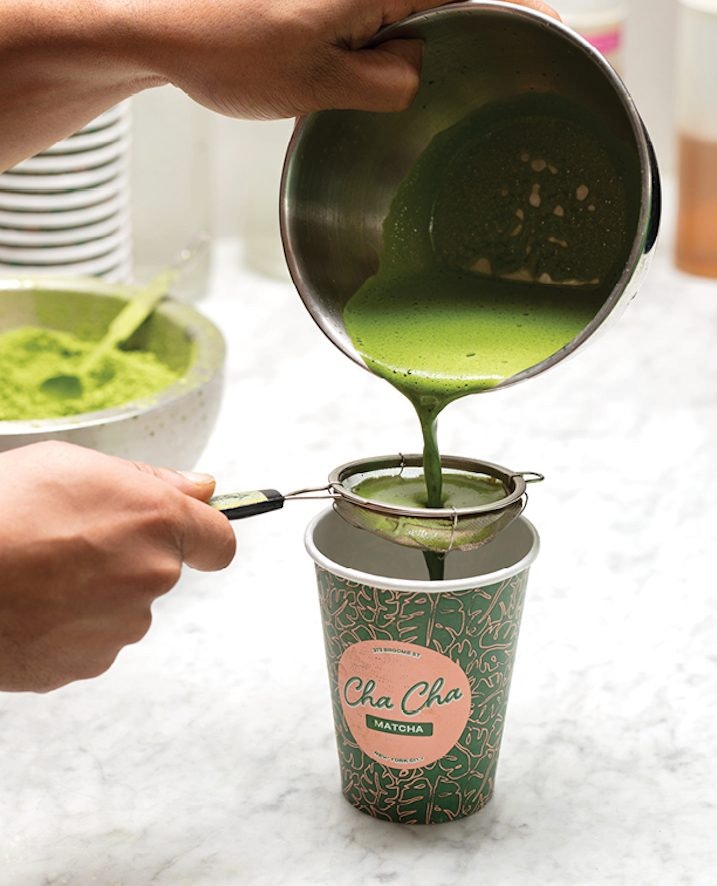

According to the latest medical studies, if you want to air on the side of caution with caffeine, you should limit the total amount of caffeine to well below 200 mg per day. If you aren't careful about reading every label of the packaged foods you consume, your caffeine consumption can quickly go over the recommended amount. The traditional Western or American diet has a lot of hidden caffeine. Due to other natural compounds found in matcha, such as L-theanine, daily matcha tea drinking can be beneficial in many ways during pregnancy. The caffeine from matcha is very different than other forms of caffeine. What makes matcha caffeine safer for pregnancy than coffee?
TEASPOON MATCHA CAFFEINE FULL
Wondering exactly what makes matcha caffeine safer for pregnancy than coffee? Read our full article on matcha caffeine and how it is processed differently by the body. So if you are currently a coffee drinker who's pregnant or trying to get pregnant, we recommend asking your healthcare provider about switching from coffee to matcha. With matcha, you can enjoy lattes at the same frequency and volume average adults drink coffee. (19) Should I switch from coffee to matcha while pregnant or breastfeeding?Ĭombine matcha's moderate amount of caffeine packed per serving with its incredibly full range of natural nutrients, and it's genuinely an excellent caffeinated drink of choice while pregnant or breastfeeding. So if matcha is your only source of caffeine in a given day, then you can likely rest assured you are well below 200mg of caffeine if you are having over four servings or cups of green tea or matcha (powdered green tea leaves) in one day. To put this in perspective, compare this to a standard cup of coffee or one shot of espresso, which has about 100 mg of caffeine. (9) How much caffeine does matcha tea have?Ī cup of matcha tea usually has around 35 mg of caffeine.

Luckily, a review of existing studies found that moderate amounts of matcha while pregnant (staying under 200 mg per day ) is entirely safe for you and your baby's health. For example, one study published in 2008 found that having up to 400 mg of caffeine (which is equivalent to two large cups of coffee) could double your risk of miscarriage or preterm birth. Studies have shown that consuming large amounts of caffeine may increase your risk of a miscarriage at any point during the 40 weeks you are pregnant. According to medical research, pregnant women should keep their caffeine consumption below 200 mg daily. And if you are pregnant, you've probably already heard it's important to restrict your caffeine intake. Like coffee, chocolate, energy drinks, and some supplements, matcha tea has caffeine. Our various matcha offerings at are in the range of 35-50mg/g. For example, exactly how the matcha is grown, harvested, and prepared can all have a significant impact on matcha caffeine levels. According to research, the typical range of caffeine in matcha green tea ranges a lot - 18 to 50 mg/g - depending on the quality of the matcha. Often, the concern of drinking matcha while pregnant stems from matcha's caffeine content. How much caffeine is safe for a pregnant woman? We answer all the common questions around matcha and pregnancy safety in the following post. To put that in perspective, that is equivalent to having two large matcha green teas a day using a teaspoon of matcha with each one. This means that you can have four servings of matcha per day and still be under the recommended limit of 200mg of caffeine for an expecting mother. (4)ġ gram of high-quality matcha contains between 35-50mg of caffeine. You've probably heard you should avoid raw fish, alcohol, cigarettes, and soft cheeses while pregnant, but what about matcha? Is drinking matcha during pregnancy safe? Can you drink matcha while pregnant? The short answer to can you drink matcha while pregnant is yes! Matcha is very safe when consumed in moderation while pregnant. Pregnancy comes with a long list of transformations for expecting mothers – physical and mental – and it's completely normal to have endless questions and concerns.


 0 kommentar(er)
0 kommentar(er)
